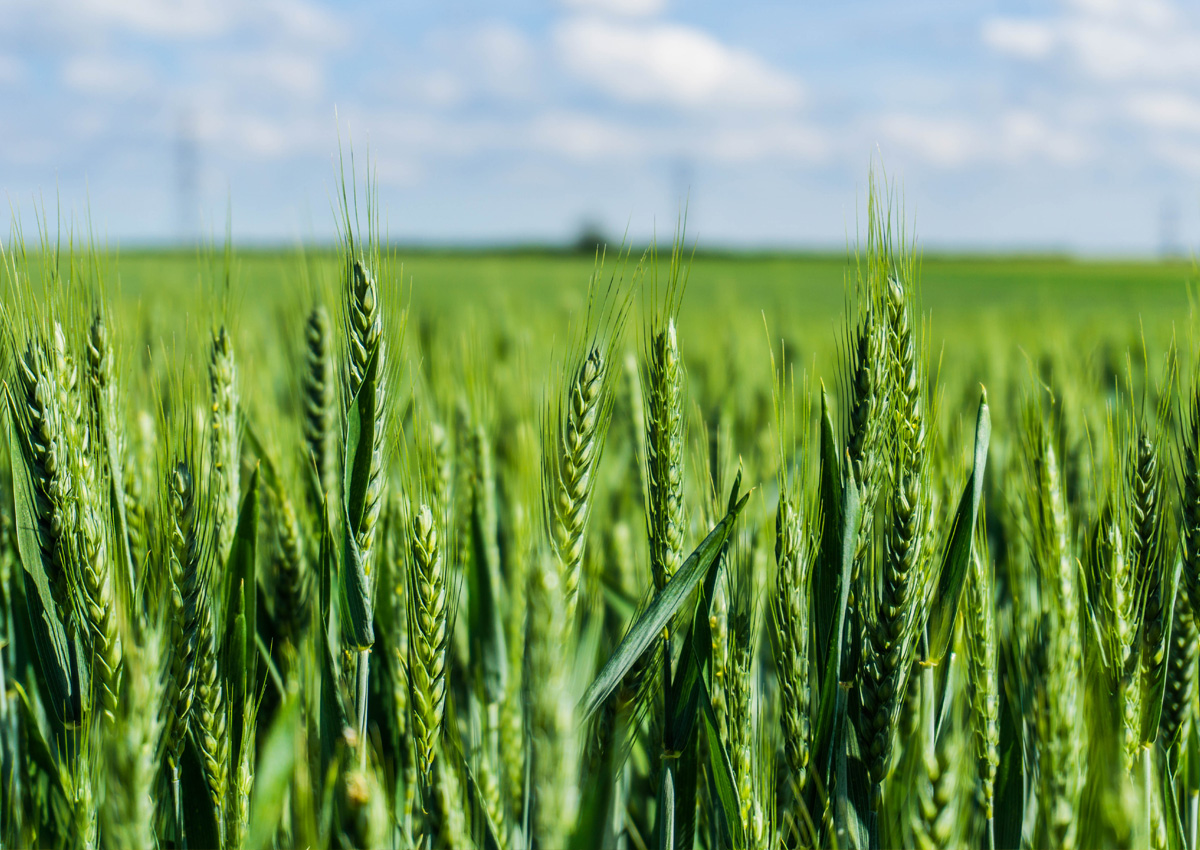
Researchers Identify Genomic Regions Associated with Yield Potential and Climate Resilience in Bread Wheat
May 26, 2021| |
A landmark research survey on grain yield potential and climate resilience has identified genomic regions associated with yield potential and stress-resilience in bread wheat. Scientists from the International Maize and Wheat Improvement Center (CIMMYT) conducted a genome-wide association study (GWAS) based on 100 datasets and 105,000 grain yield observations from 55,568 wheat breeding lines developed by CIMMYT.
The researchers evaluated the lines between 2003 and 2019 in different sites, years, planting systems, irrigation systems, and abiotic stresses at CIMMYT's primary yield testing site, the Norman E. Borlaug Experimental Research Station in Ciudad Obregon, Mexico, and in an additional eight countries including Afghanistan, India, and Myanmar. The researchers generated the grain-yield-associated marker profiles and analyzed the grain-yield favorable allele frequencies for a large panel of 73,142 wheat lines, resulting in 44.5 million data points. The marker profiles showed that the CIMMYT global wheat germplasm is rich in grain yield favorable alleles and is a trove for breeders to choose parents and design strategic crosses based on complementary grain yield alleles at desired loci.
"By dissecting the genetic basis of the elusive grain-yield trait, the resources presented in our study provide great opportunities to accelerate genomic breeding for high-yielding and climate-resilient wheat varieties," said CIMMYT wheat breeder Philomin Juliana.
For more details, read the news article on the CIMMYT website.
| |
You might also like:
- UK Scientists Develop Genome-edited Wheat to Reduce Cancer Risk from Bread
- Scientists Complete Bread Wheat Genome Sequence
- CSIRO Scientists Develop Healthier Bread Wheat
Biotech Updates is a weekly newsletter of ISAAA, a not-for-profit organization. It is distributed for free to over 22,000 subscribers worldwide to inform them about the key developments in biosciences, especially in biotechnology. Your support will help us in our mission to feed the world with knowledge. You can help by donating as little as $10.
-
See more articles:
-
News from Around the World
- GM White Maize Contributes to Food Security in South Africa
- Study Shows Plants Respond to Different Light Intensities
- Scientists Discover Ancient Melon Key in Breeding Disease-Resistant Watermelons
- Researchers Identify Genomic Regions Associated with Yield Potential and Climate Resilience in Bread Wheat
- World Vegetable Center Sends Seeds to the Svalbard Global Seed Vault
- Herbicide Tolerant GM Canola Gets Commercial Approval in Australia
-
Research Highlights
- BGLS-producing Potatoes Could Lead to Broad-spectrum Protection from Pest and Diseases
- Scientists Show Correlation of Cry1Ac mRNA and Protein Abundance in Biotech Cotton Plant
- Polish Wheat's Long Grain Trait Traced to One Genetic Component
- Identified Fruit Protein Helps Control Tomato Ripening
-
Plant
- Rice VCS1 as Tool to Mark and Visualize Vegetative Cell of Pollen
-
Health
- Medicago's Plant-Based COVID-19 Vaccine Shows Positive Phase 2 Results
-
Read the latest: - Biotech Updates (January 21, 2026)
- Gene Editing Supplement (December 17, 2025)
- Gene Drive Supplement (February 22, 2023)
-
Subscribe to BU: - Share
- Tweet

